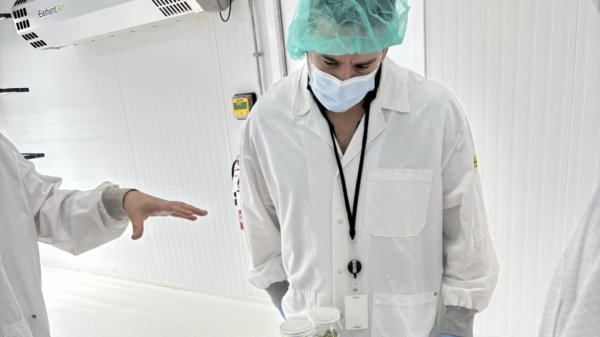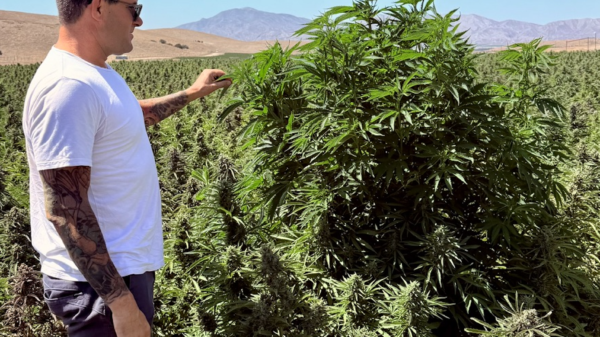Pop music icon Elton John recently made his stance about cannabis known when he told TIME Magazine that legalizing the plant in many U.S. states and Canada was “one of the greatest mistakes of all time.”
He was just recognized as the major media publication’s Icon of the Year.
“I maintain that it’s addictive, it leads to other drugs,” he said. “And when you’re stoned—and I’ve been stoned—you don’t think normally.”
The British singer, songwriter and pianist has had struggles with addiction in the past and feels that the “gateway drug” sentiment about marijuana among some is correct. He once struggled with cocaine and has been sober since 1990.
This was the first time the famous musician had voiced his opinion on the subject. However, he did say that smoking pot during the 1980s was having an impact on his voice, which is one of the reasons he quit.
Some social media users criticized his condemnation of marijuana, saying that just because he needed to get sober doesn’t mean that weed is bad for everyone.
“If I’ve chosen not to get high anymore, no one should get high anymore,” one X user mockingly said.
Forget about the developments in the Middle East or the aliens flying over New Jersey. Let’s talk about something important. Elton John is against cannabis legalization. What an asshole.
— Brian Eskow (@brianeskow) December 12, 2024
Read more: Grown Rogue kicks off New Jersey sales after getting cultivation facility up and running
Read more: Organigram takes top Canadian market share position with Motif Labs acquisition
But what do the numbers say?
The Canadian government has raked in over C$15 billion in tax revenue since marijuana was legalized in 2018, much of which has gone to public services, education and other important community initiatives. This new industry also has created over 280,000 jobs for residents, an accomplishment that is hard to knock.
It has brought a significant amount of tourism and subsequent revenue to the country from people who live in nations where chronic merchandise is illegal too. However, the tax rate in Canada is questionably high and cumbersome for those trying to make a living in the business.
In the U.S., states that have legalized adult-use cannabis have collected over US$20 billion in tax revenue from it. Much of that sum was also used to fund public infrastructure development and services.
American legalization has made medical cannabis more accessible to those with debilitating conditions that it can help mend. Furthermore, a recent research report found that it has reduced the number of opioid overdose deaths throughout the country.
It has also helped promote vast amounts of research on the plant’s applications for treating a variety of health conditions in both countries.
But, cannabis legalization has been linked to an increasing rate of emergency room visits, particularly among children who accidentally ingest THC-infused edibles. Some have voiced concern that regulation hasn’t helped to reduce youth access to pot more broadly as people had hoped.
It has been positive economically and scientifically with some complications, overall. There have been concerns about the mental health impact of increased pot usage among some scholars while others say it is beneficial for anxiety, stress and depression.
rowan@mugglehead.com














